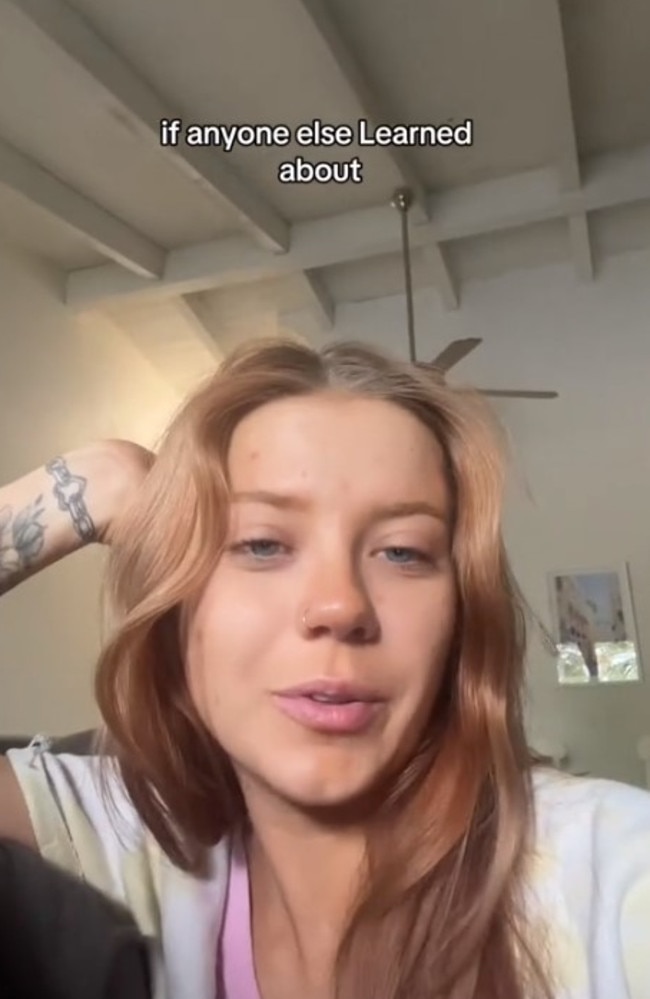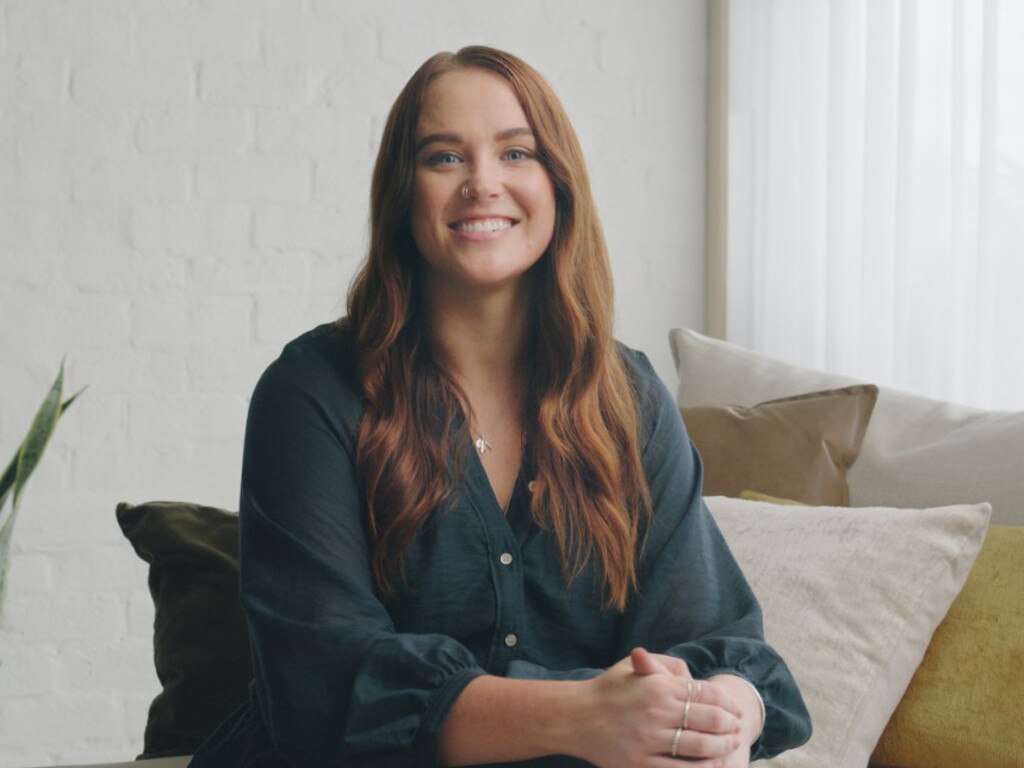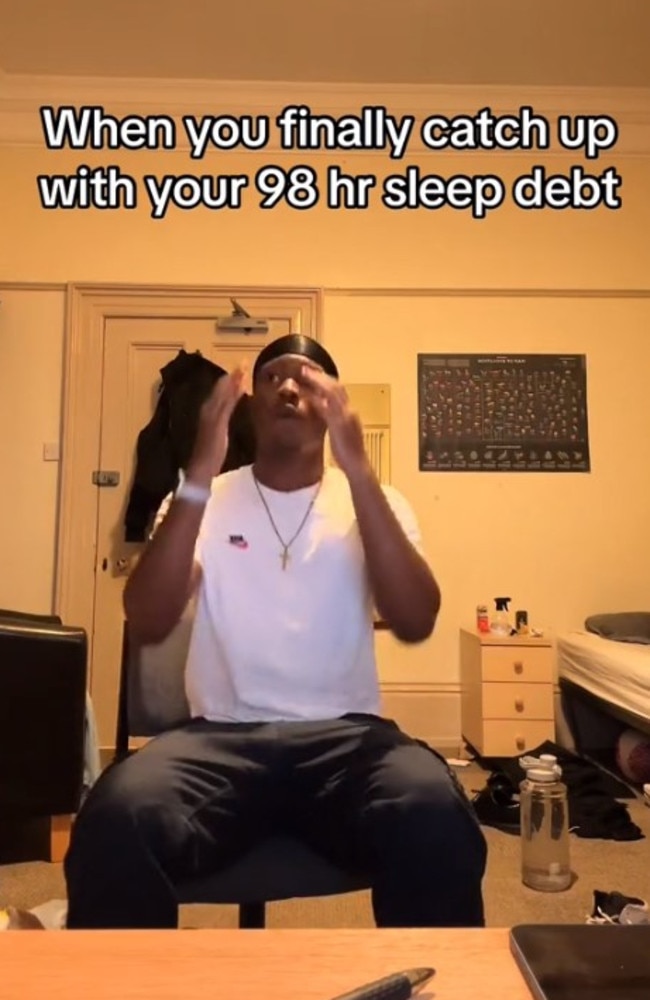Expert reveals what sleep debt is and if you can ‘pay it back’
What happens to your body when you aren’t getting enough sleep? Can you ever actually get that sleep back? Sadly, it’s not as simple as you think.

There are many things in life preventing us from getting a full night’s sleep – scrolling on social media, work stress, the cost-of-living crisis are just a handful of reasons you may be wide awake.
But, what happens to your body when you aren’t getting that sleep? Can you ever get that sleep back?
Sleep debt is the idea that your body isn’t getting its seven to nine hours of sleep a night that it needs to function.
It may not seem noticeable at first but sleep debt can impact concentration, judgement, make us cranky and ever more hungry – and these are just short term effects.
In the long term it can lead to health issues such as obesity, high bloody pressure, heart disease and impact our mental health.
TikTok user Mary Jane is no stranger to sleep debt, saying when she wakes up at 5am she desperately needs to sleep until 10am the following day.

“Or else my body is going to shut down – it’s happened before,” she said.
“When I don’t get enough sleep for a number of days in a row, I am a formidable b****. Or I get depressed."
It’s all over our For You Page on TikTok. Fitness influencers are constantly talking about it. So where did this idea come from?
Rachel Beard, Sleep Wellness Manager of A.H. Beard’s Sleep Wellness Centre, told news.com.au: “Sleep debt, jet lag, and social jet lag are all examples of the same age-old health concern — sleep deprivation.
“Sleep debt isn’t a new concept although we may be hearing about it more now — as a society, we seem to be paying far more attention to our sleep health and wellness.
“Until recently, many people have focused on diet and fitness as key markers of our health but as science progresses we’re starting to realise that sleep is at the centre of our mental and physical health and with this, we’re more conscious of things like sleep debt!”
So, you’re bleary-eyed from a long week. Maybe it’s the extra hours clocked at the office, or taking care of a newborn. Either way, you’re not getting the sleep you should be and you can feel it. Is there a way to reboot your body?

Rachel says we should never accumulate too much sleep debt – and sleeping 16 hours isn’t a realistic way to do it. In fact, it can throw off your body even more.
“The best way to prevent sleep debt is to maintain a consistent sleep schedule by waking up at a regular time each day — and to balance your sleep debt, rather than sleeping, consider going to bed a bit earlier,” Rachel said.
“If you’ve been struggling with your sleep routine and find yourself with sleep debt you can try taking a nap throughout the day.
“Try taking a bit of time out of your weekend for a Sunday siesta — just make sure you stick to 20 or 90 minute naps otherwise you risk waking up feeling groggy rather than refreshed!”
She added: “The biggest thing to remember when paying back our sleep debt is that you should do so gradually and prioritise getting back into routine.”
Rachel advised some ways to get to sleep easier is by exercising after work, eating dinner within three hours before bed and allowing time to clean, relax and disconnect from the day.
Then, when it’s close to bed time, you should dim the lights, have a shower or bath and get into your pyjamas.
“In the last hour before bed, put away phones, turn off TVs, screens and lights and choose to read, listen to a meditation, or try a breathing technique and drift off to sleep,” she said.
There are many things that can impact sleep, such as a 2pm coffee, chocolate or soft drink because the caffeine can still be processing in your system until 10pm.

“What we do in the lead up to sleep also can be preventing you achieving quality rest, such as eating dinner too late to bedtime or your physical activity throughout the day,” Rachel said.
“Exercising not only benefits our physical and mental health, but it is also extremely beneficial for our sleep – particularly, our sleep latency, the time is takes to fall asleep, so if you struggle to fall asleep easily, exercising after work, even a 20-minute walk, can help improve your sleep and helps you disconnect from the day.”
Most importantly, Rachel believes finding a consistent bedtime routine is vital, and your bedroom is set up for success.
“Ensure your bedroom is cool, dark, quiet, clutter-free and ideally saved for sleep and intimacy only,” she said.
“Then once you’re in bed, remember to avoid devices, like TV and your phone an hour before bed as the blue-light suppresses melatonin, our natural sleep hormone.
“This tip is easier said than done, because once you open your phone or start a series, you may be there right until you close your eyes, so try setting a reminder and switch off to help get a good night’s sleep.”






